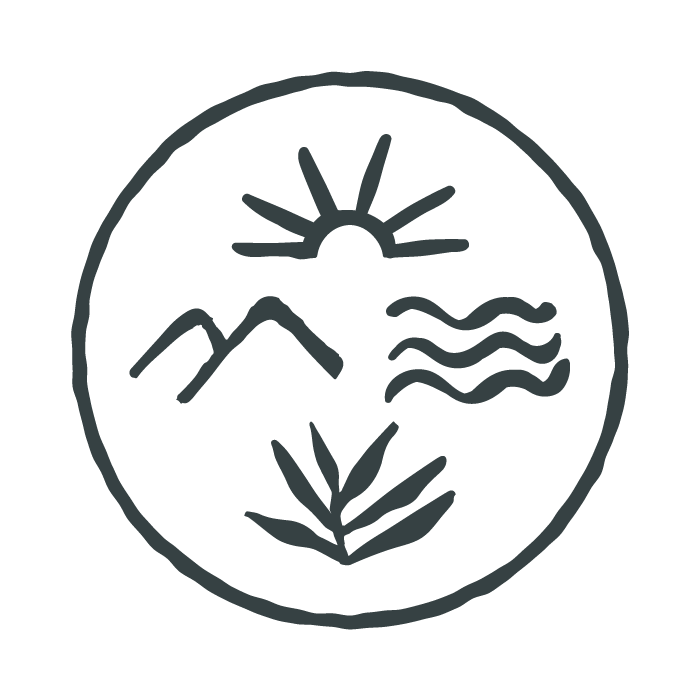
There is nothing quite like exploring the ocean through scuba diving, it’s an incredible adventure into the underwater world which gives you the opportunity to connect with marine life like never before. If you are new to the idea, this beginners guide to scuba diving will be a great starting point. Scuba diving is an adventurous activity, but one which is also conscious and calming. You have to be present and free from distractions while you’re underwater, which allows you to notice the little things and absorb every moment.
I started diving at a young age, around 13 years old, and it has remained a passionate hobby of mine ever since. It’s allowed me to foster a deeper connection with the ocean, marine life and nature. It has enabled me to experience and explore destinations in a new and exciting way, one which exposes me to the other 70% of our planet – the one underwater. If you’re thinking of giving it a go, I hope this guide provides you with all the initial information you need to start your journey to becoming a qualified, responsible and respectful diver.
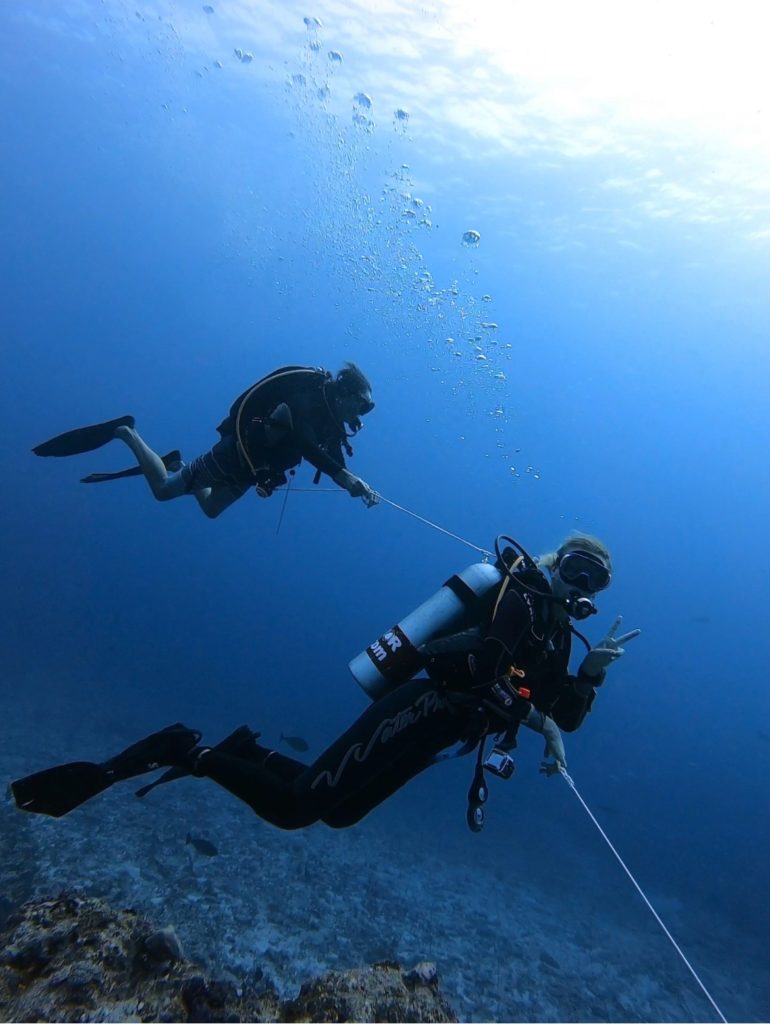
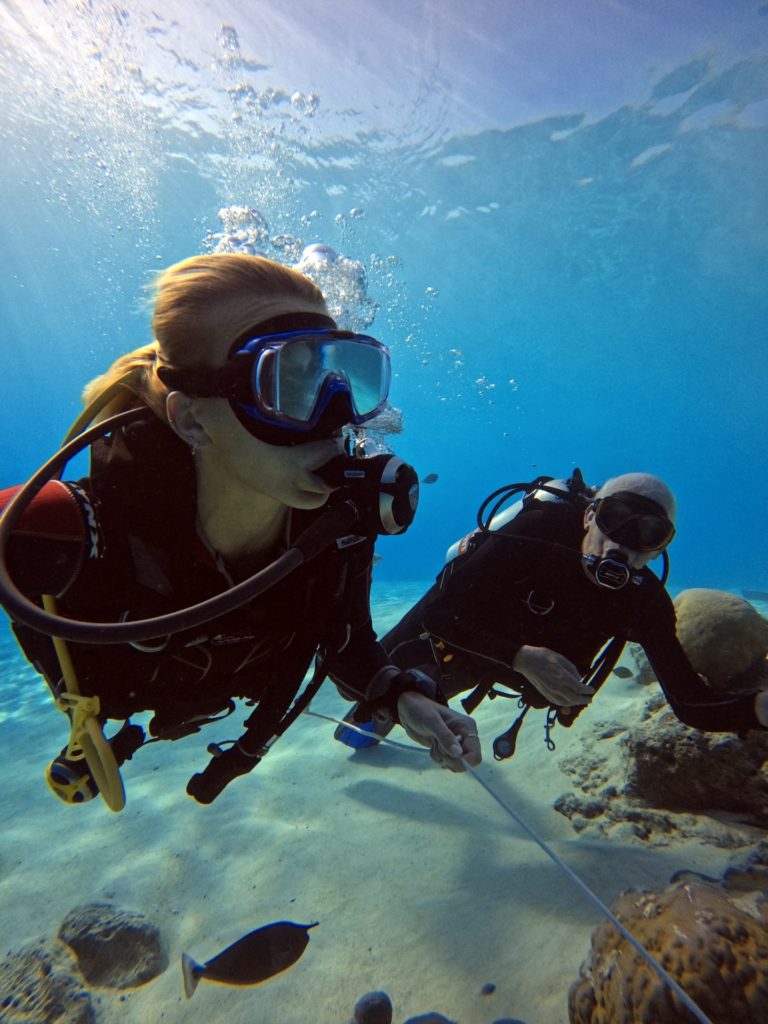
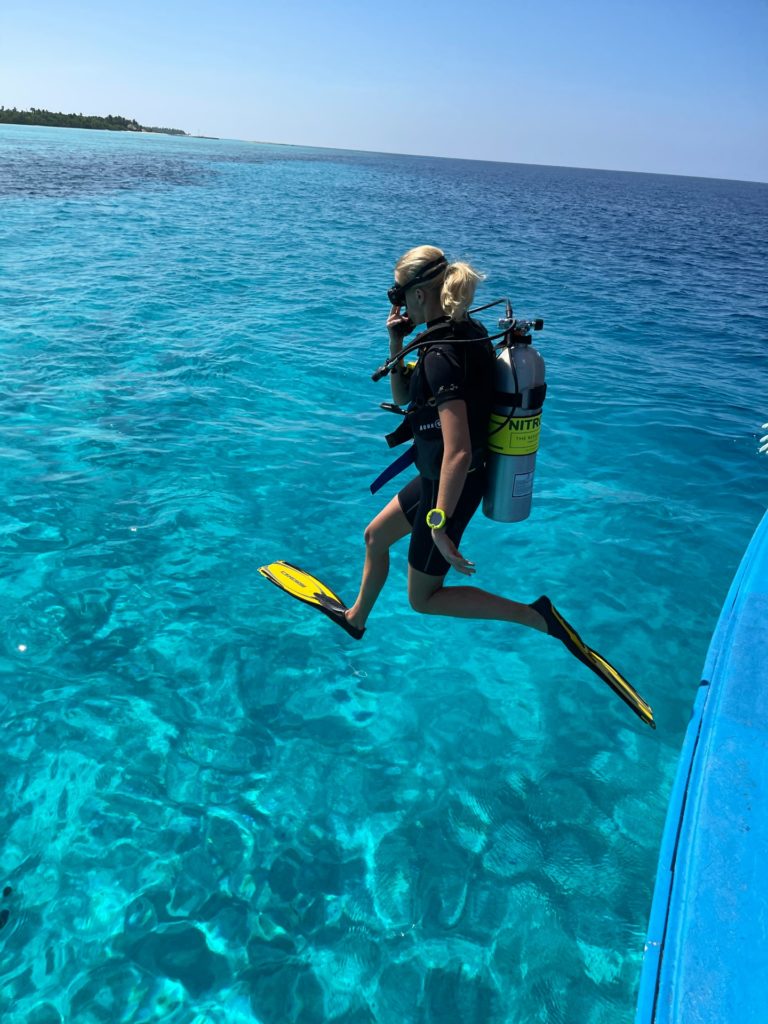
If you’re wanting to start scuba diving, you can’t just throw on a tank and jump into the sea. You need to gain qualifications and learn essential safety information to go underwater. Here are the initial qualification levels:
Personally I am an advanced open water diver with Nitrox, and that is the level that I recommend most people aim to qualify to. It allows you to have lots of freedom underwater, diving deeper and longer on a wider range of dive sites. The qualifications beyond these initial levels become more complex, including Rescue Diver, Dive Master and Dive Instructor. They are great qualifications to have if you want to really expand your knowledge and skills or pursue a diving career, but if you’re aiming to be purely a recreational diver then they aren’t essential for day to day diving.
In terms of course providers, the most well respected and regulated are PADI (who I qualified with) and SSI. There isn’t a huge difference between the two and honestly the most important choice is which dive centre and dive instructor you learn with, as that will influence your experience more than the specific qualification provider.
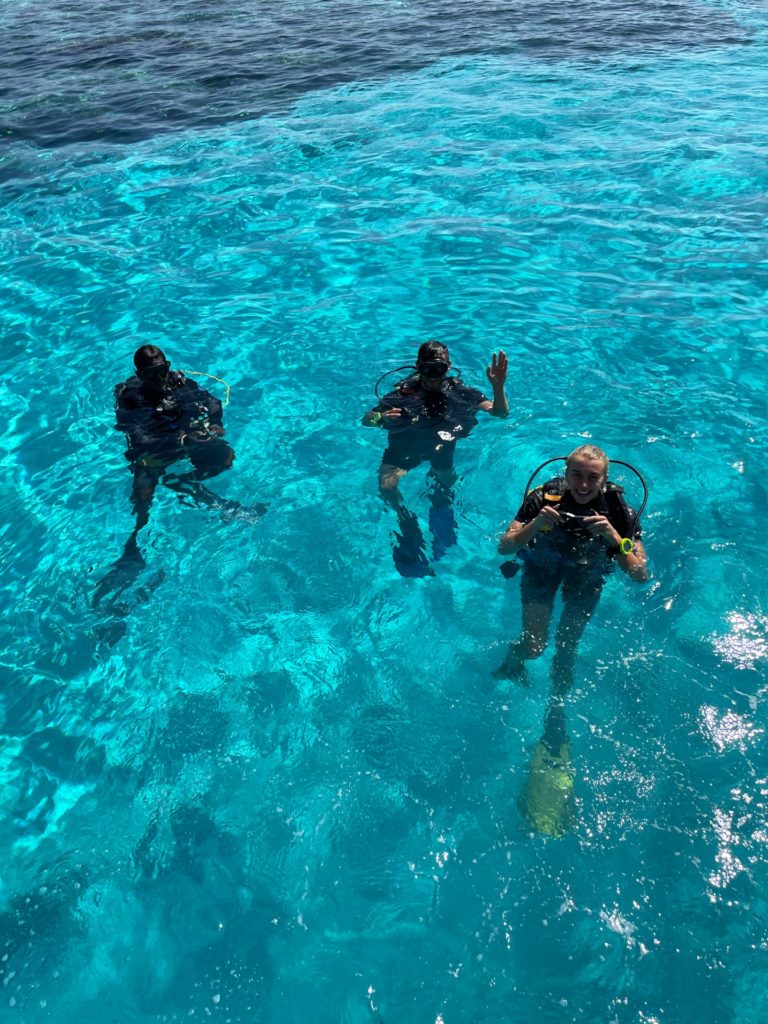
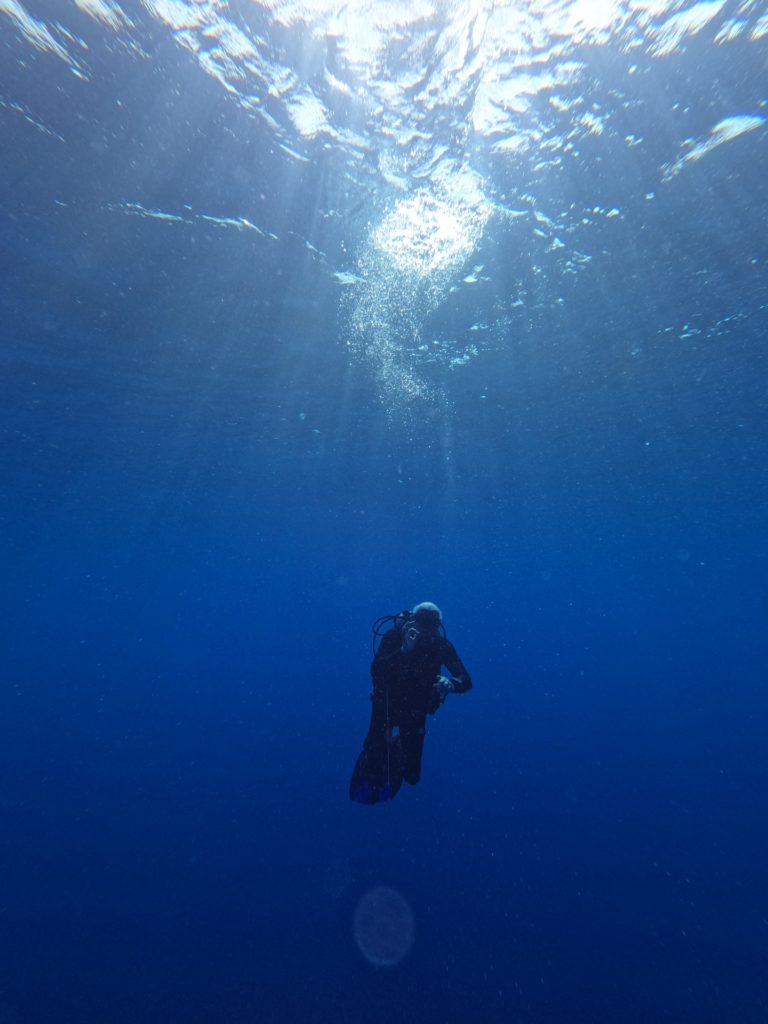
The dive centre that you choose to learn or dive with is really important. Their professionalism, enthusiasm and attitude will hugely affect your experience underwater. Here are some key ways to check you’re using a good dive shop:
It is possible to gain your scuba qualifications at any reputable dive shop across the world, from the cold waters of the UK through to the warm seas of the Maldives. If possible, I would consider these key points:
Some great beginner friendly (and warm water!) locations for diving are:
For divers seeking qualifications or newly qualified divers, I would recommend using dive shops based on land. Once you’ve got a few more dives under your belt and feel confident underwater, there are other options to explore such as live-aboard boats.
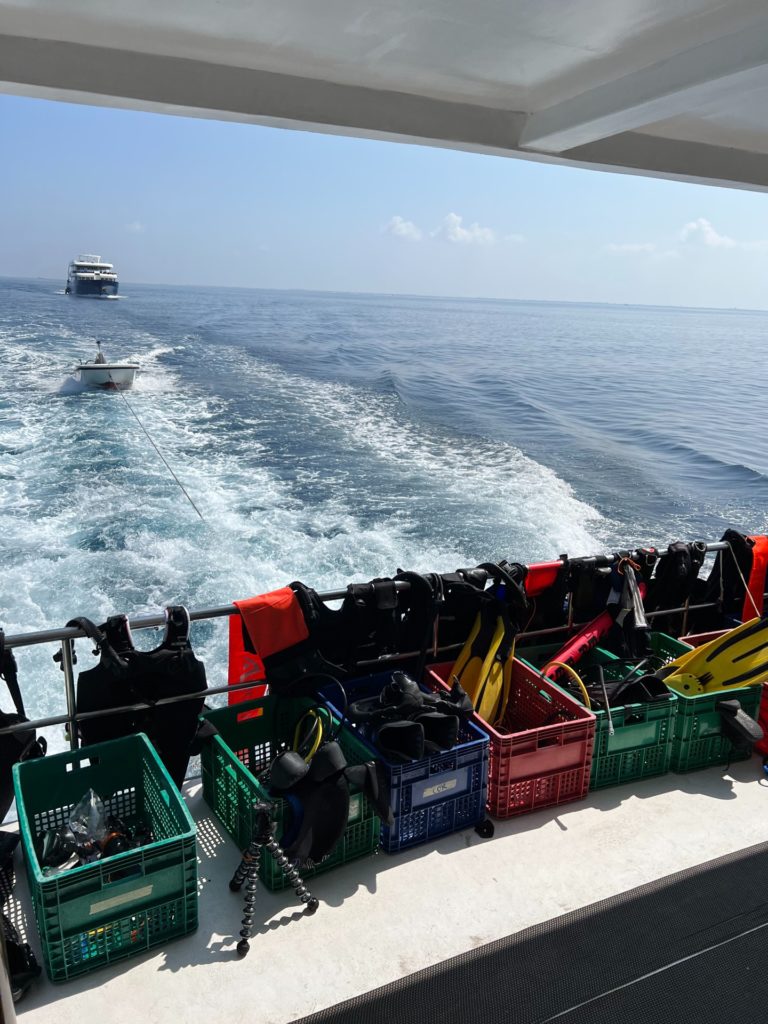
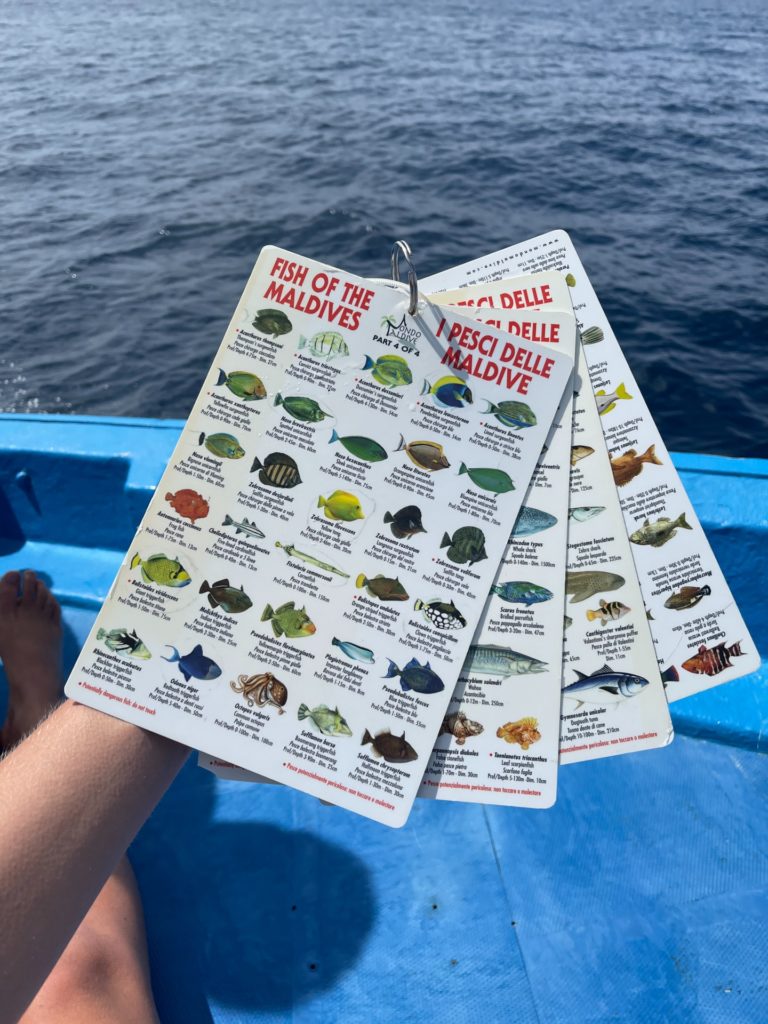
A big part of scuba diving is the equipment you carry and use to enable you to go underwater. If you’re a beginner, don’t worry about bringing any of your own. Dive shops will have a full range of equipment for you to rent and use for the duration of your course or dive trip. However, if you’re a more experienced diver and plan on diving on a regular basis, it may be worth investing in some of your own gear, to save the hassle and cost of renting it every time you dive.
The easiest things to purchase and travel with are a mask, snorkel and fins. Even if you’re only diving every so often, these items are useful for other ocean activities such as snorkelling. I also recommend everyone bring their own dry bag (to keep their essentials dry in the dive centre and on the dive boat) and some reef safe suncream.
Since I now dive a few times a year, I have invested in my own equipment – a BCD (buoyancy control device), SMB (surface marker buoy), regulator, wetsuit, reef hook and dive computer – which I bring on my diving trips. One thing to note is that these items aren’t cheap so I wouldn’t recommend doing this unless you’re an avid and committed diver.
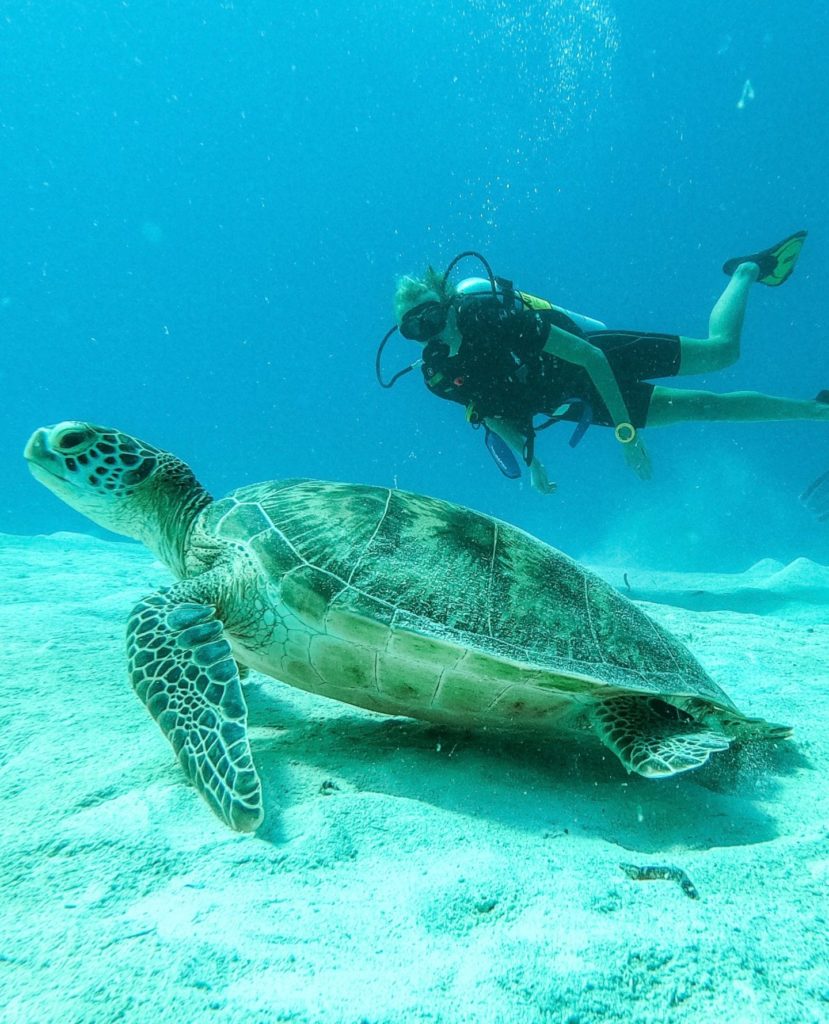
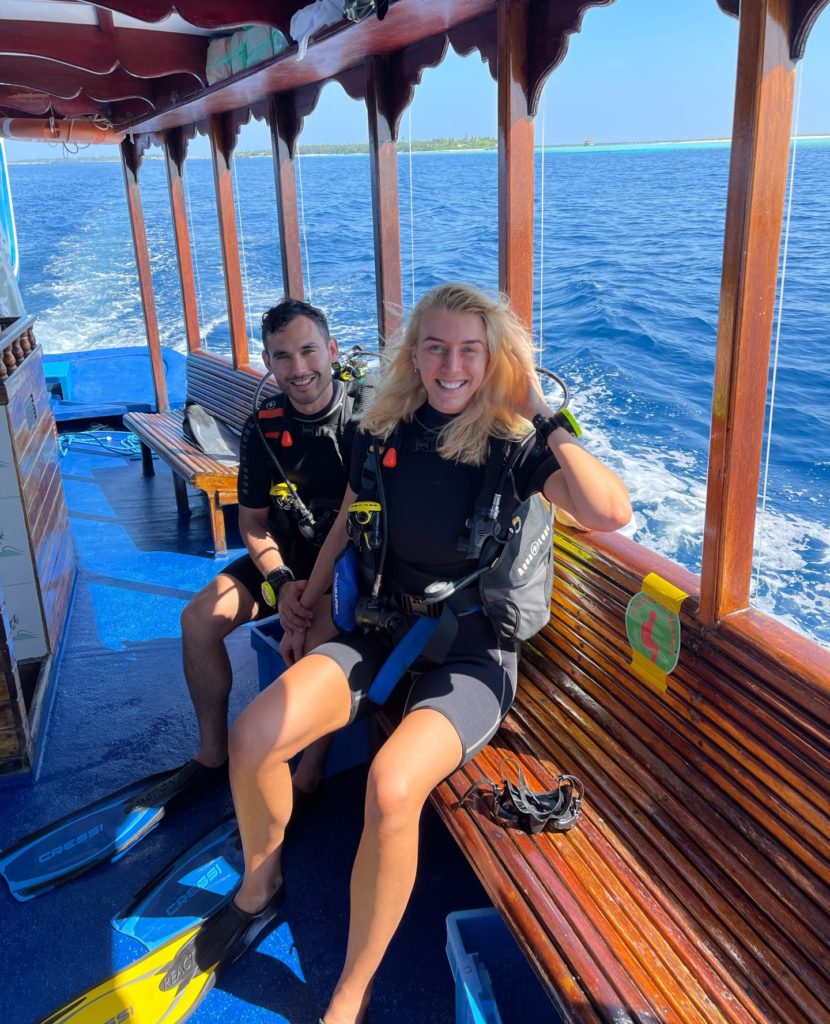
Finally, here are some quick fire beginners scuba diving tips to make your experiences underwater even better, safer and more enjoyable.
And most importantly, have fun! Once you’ve become a certified diver, you have officially joined one of the best communities in the world – a collective of ocean lovers and explorers! Delving into the underwater world is an incredible privilege, enjoy.
Happy diving,
Zanna xx
Let me slide into your inbox. A monthly newsletter of all the good stuff – latest posts and videos, rants and rambles, recommendations and resources.
Website Designed by Brogan Daisy Digital © Zanna Van Dijk 2025